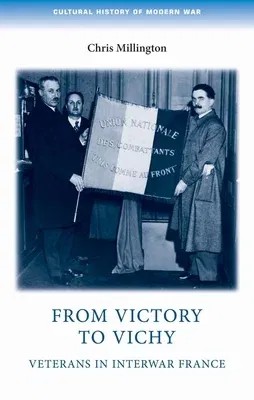From victory to Vichy explores the political culture and mobilisation of
the two largest French veterans' associations during the inter-war
years, the Union fédérale (UF) and the Union nationale des combattants
(UNC). Drawing on extensive research into the associations'
organisation, discourse and tactics, this study revises the established
interpretation that French veterans were inherently democratic and
supportive of the parliamentary Third Republic.
With approximately 900,000 members each, the UF and the UNC were the
giants of the veterans' movement. During the 1920s, the UF and the UNC
were often bitterly opposed on points of domestic and foreign policy yet
could unite in the cause of veterans' rights. The following decade,
though both associations claimed to reject politics, their political
action intensified. The UNC fought side by side with nationalists
against police during the infamous riot of 6 February 1934. During the
subsequent polarisation of French politics, the UF and the UNC sought to
expand their influence in the non-veteran milieu through public
demonstrations, auxiliary groups, propaganda campaigns and, in the case
of the UNC, alliance with the extreme Right. Despite shifting policies
and independent initiatives, by the end of the 1930s the UF and the UNC
had come together in a campaign for authoritarian political reform,
leaving them perfectly placed to become the 'eyes and ears' of Marshal
Pétain's Vichy regime.
Offering an original contribution to the history of late Third
Republican political culture, From victory to Vichy will appeal to
students and scholars of modern France and Europe.

